 It's been said that a company's data is its most important resource. If this is true, then is it possible to assign a monetary value to your files? If you attempted to do so, you may come to the conclusion that your company's data is more valuable than anything else in your business, maybe even your own job!
It's been said that a company's data is its most important resource. If this is true, then is it possible to assign a monetary value to your files? If you attempted to do so, you may come to the conclusion that your company's data is more valuable than anything else in your business, maybe even your own job!
Directive Blogs
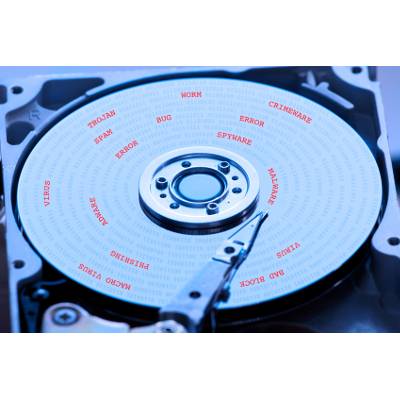 Your mind is racing at a mile a minute, and you keep a to-do list for all of the things you are supposed to do. Unfortunately, that to-do list is often forgotten about. You save it as a .DOC text file on your computer, which has been making a strange clicking noise lately. But one day, the clicking sound gets worse, and worse, and worse, until your computer stops working completely. Just like that, all of your data is gone, and that's when it hits you.
Your mind is racing at a mile a minute, and you keep a to-do list for all of the things you are supposed to do. Unfortunately, that to-do list is often forgotten about. You save it as a .DOC text file on your computer, which has been making a strange clicking noise lately. But one day, the clicking sound gets worse, and worse, and worse, until your computer stops working completely. Just like that, all of your data is gone, and that's when it hits you.
 Are you aware of the value of your company's data? If you lost it all today, what would it cost your business in terms of productivity, downtime, and liability? Security precautions need to be taken in order to keep your data safe, including data backups. However, after you have a backup system in place, don't neglect the need to secure those backup files!
Are you aware of the value of your company's data? If you lost it all today, what would it cost your business in terms of productivity, downtime, and liability? Security precautions need to be taken in order to keep your data safe, including data backups. However, after you have a backup system in place, don't neglect the need to secure those backup files!
 A business that manages its data efficiently will be well positioned to handle growth. One of the most crucial components of data management is ensuring that everything is backed up properly; an increasingly difficult task as businesses use more data every year. Implementing a cost-effective and reliable data backup solution should be the goal of every IT professional.
A business that manages its data efficiently will be well positioned to handle growth. One of the most crucial components of data management is ensuring that everything is backed up properly; an increasingly difficult task as businesses use more data every year. Implementing a cost-effective and reliable data backup solution should be the goal of every IT professional.
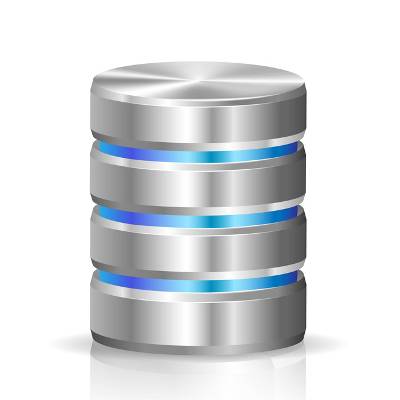 It's good to backup your data, but can you have too much of a good thing? While this may be the case for several enjoyable activities like partying and buffets, this isn't the case with data backup. In fact, the more layers of data backup you have, the more secure you will be. How good is your data backup solution?
It's good to backup your data, but can you have too much of a good thing? While this may be the case for several enjoyable activities like partying and buffets, this isn't the case with data backup. In fact, the more layers of data backup you have, the more secure you will be. How good is your data backup solution?
 You may feel like your computer network is immune to data loss, but according to a study by Blackblaze.com, 46% of users experience data loss every year. Whether it's from something big like a natural disaster, or minor like improperly removing a flash drive, every form of data loss is costly and can be prevented with a data backup plan.
You may feel like your computer network is immune to data loss, but according to a study by Blackblaze.com, 46% of users experience data loss every year. Whether it's from something big like a natural disaster, or minor like improperly removing a flash drive, every form of data loss is costly and can be prevented with a data backup plan.
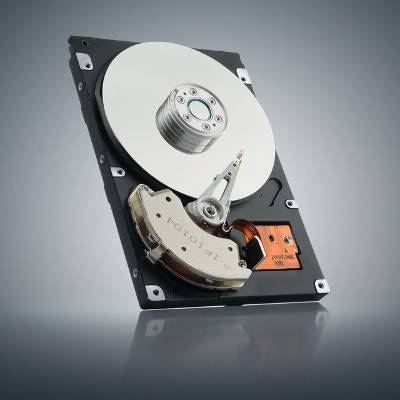 It's important to understand how long your hard drive will last so you can minimize the risk of data loss from a drive failure. Disk hard drives are made up of tiny parts with platters that rotate at thousands of RPMs, which makes it the most vulnerable component of your PC. How much life is left on your server's hard drive?
It's important to understand how long your hard drive will last so you can minimize the risk of data loss from a drive failure. Disk hard drives are made up of tiny parts with platters that rotate at thousands of RPMs, which makes it the most vulnerable component of your PC. How much life is left on your server's hard drive?
 The importance of backing up your company's data cannot be stressed enough. Data is your business' most valuable asset, as evidenced by the fact that companies unable to access their data for ten days after a major disaster (like Hurricane Sandy that hit the mid atlantic and northeast U.S) will not survive the next fiscal year. Here's how to protect your business with data backup.
The importance of backing up your company's data cannot be stressed enough. Data is your business' most valuable asset, as evidenced by the fact that companies unable to access their data for ten days after a major disaster (like Hurricane Sandy that hit the mid atlantic and northeast U.S) will not survive the next fiscal year. Here's how to protect your business with data backup.
 What would happen if your business experienced a disaster and your sensitive information was erased? If you don't have a business continuity plan in place that includes data backup and recovery, then it's highly unlikely your company will survive. To protect your business, you will want to consider and choose one of these three backup solutions.
What would happen if your business experienced a disaster and your sensitive information was erased? If you don't have a business continuity plan in place that includes data backup and recovery, then it's highly unlikely your company will survive. To protect your business, you will want to consider and choose one of these three backup solutions.
 In a recent survey of small businesses, only 13% of respondents believed themselves to be susceptible to a disaster resulting in data loss. That means 87% of small businesses must be located in a fortress where they are protected from every natural disaster--yeah right! No business is immune from disaster; therefore, every company needs a disaster plan.
In a recent survey of small businesses, only 13% of respondents believed themselves to be susceptible to a disaster resulting in data loss. That means 87% of small businesses must be located in a fortress where they are protected from every natural disaster--yeah right! No business is immune from disaster; therefore, every company needs a disaster plan.
 Backing up your company's data is critical when it comes to keeping operations going after a disaster. Data backup is an important operating expense that you can't afford to skip out on, but if you're looking to cut back on the cost of your data backup service, then you should consider the 80/20 Rule.
Backing up your company's data is critical when it comes to keeping operations going after a disaster. Data backup is an important operating expense that you can't afford to skip out on, but if you're looking to cut back on the cost of your data backup service, then you should consider the 80/20 Rule.
 You can take out an insurance policy on anything, even a wedding. Insurance company Fireman will protect your big day against "nonrefundable expenses, including cancellation due to serious illness, injury, extreme weather, a missing caterer or officiate -- even a bankrupt event facility." Your businesses technology is important enough to insure; is there a policy to protect your tech?
You can take out an insurance policy on anything, even a wedding. Insurance company Fireman will protect your big day against "nonrefundable expenses, including cancellation due to serious illness, injury, extreme weather, a missing caterer or officiate -- even a bankrupt event facility." Your businesses technology is important enough to insure; is there a policy to protect your tech?
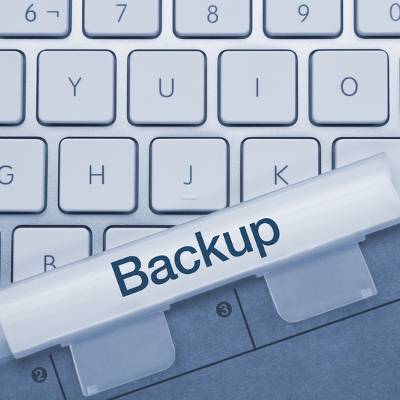 Every business needs to have a business continuity plan to keep operations going after experiencing a disaster. The centerpiece to every plan is having a backup and recovery solution in place for your company's data. If something happens to your data, your business may not recover. Here are four backup statistics that show the importance of backing up.
Every business needs to have a business continuity plan to keep operations going after experiencing a disaster. The centerpiece to every plan is having a backup and recovery solution in place for your company's data. If something happens to your data, your business may not recover. Here are four backup statistics that show the importance of backing up.
 Something that's redundant might be understood as something that's no longer needed, excessive, or unnecessary. While the word redundancy is used as a negative adjective for most of life's scenarios, when it comes to business technology, redundancy is an asset. Here are three ways redundancy can help.
Something that's redundant might be understood as something that's no longer needed, excessive, or unnecessary. While the word redundancy is used as a negative adjective for most of life's scenarios, when it comes to business technology, redundancy is an asset. Here are three ways redundancy can help.
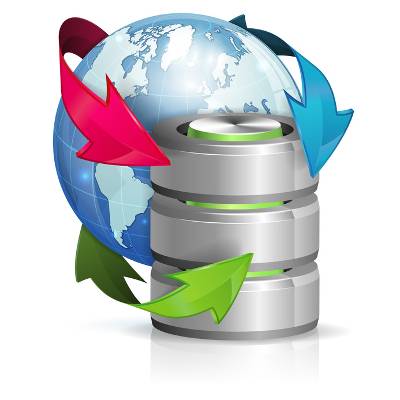 What would you say if we told you that disc error rates have been found to be ten times worse than what the vendor's drive specifications state? They're not lying, they are just predicting their own drive's failure rate. In order to be accurate, you must account for failure rates associated with the disk controller, the cables, the PCI bus, the memory, and the processor as well.
What would you say if we told you that disc error rates have been found to be ten times worse than what the vendor's drive specifications state? They're not lying, they are just predicting their own drive's failure rate. In order to be accurate, you must account for failure rates associated with the disk controller, the cables, the PCI bus, the memory, and the processor as well.
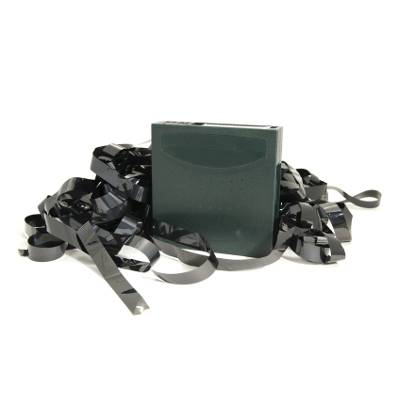 For those of us that have been able to witness the current technological revolution, we can say mankind has progressed at an exceptional rate. Remember spending hours on your TRS-80 writing code to play the simplest of games? At that point, if you didn't have the floppy disk drive, once you turned it off you had to spend all that time to rewrite the code. This period has taken us from bulky PCs (albeit still marvelous at the time) to devices with hundreds of times the computing power that fit in the palm of our hands.
For those of us that have been able to witness the current technological revolution, we can say mankind has progressed at an exceptional rate. Remember spending hours on your TRS-80 writing code to play the simplest of games? At that point, if you didn't have the floppy disk drive, once you turned it off you had to spend all that time to rewrite the code. This period has taken us from bulky PCs (albeit still marvelous at the time) to devices with hundreds of times the computing power that fit in the palm of our hands.
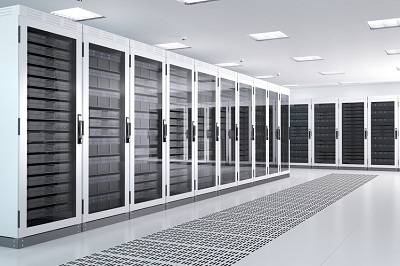 When it comes to computer memory, redundancy is a good thing. The more places that you have your data backed up to, the better off you will be if something happens to your hard drive. RAID is a common hard drive formatting procedure that improves server performance and protects your data in the event of a crash.
When it comes to computer memory, redundancy is a good thing. The more places that you have your data backed up to, the better off you will be if something happens to your hard drive. RAID is a common hard drive formatting procedure that improves server performance and protects your data in the event of a crash.
 Every business needs to backup their data. If your company is hit with a disaster, and there is no backup in place, then it will be a critical hit to your operation. Backing up data with tape is a widely used solution, and while this is better than nothing, it is very inefficient compared to using BDR.
Every business needs to backup their data. If your company is hit with a disaster, and there is no backup in place, then it will be a critical hit to your operation. Backing up data with tape is a widely used solution, and while this is better than nothing, it is very inefficient compared to using BDR.
 It wasn't too long ago when a person could go to his or her local supermarket and rent a copy of their favorite movie on VHS. When that novelty fell off, you could still get the movies at your local video store. Every town had one. Whether it was a chain such as Blockbuster or a locally owned store, millions of people relied on the video store in their town for entertainment for the better part of a quarter of a century.
It wasn't too long ago when a person could go to his or her local supermarket and rent a copy of their favorite movie on VHS. When that novelty fell off, you could still get the movies at your local video store. Every town had one. Whether it was a chain such as Blockbuster or a locally owned store, millions of people relied on the video store in their town for entertainment for the better part of a quarter of a century.
 One uncontrollable aspect in life is Mother Nature. There's no way you can stop a hurricane from ripping your roof off, but you can have an emergency plan in place for when/if it happens. People need to know what their responsibilities are and the action they need to take in those cases. How will your business continue operations in the event of a natural disaster?
One uncontrollable aspect in life is Mother Nature. There's no way you can stop a hurricane from ripping your roof off, but you can have an emergency plan in place for when/if it happens. People need to know what their responsibilities are and the action they need to take in those cases. How will your business continue operations in the event of a natural disaster?
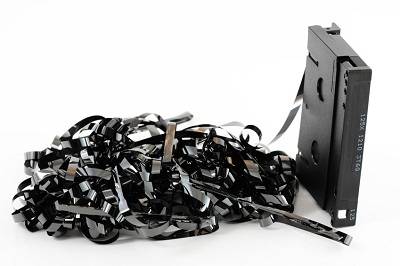 There was a time when tape backup was the cheapest and the standard data backup solution for businesses. Over the years, cloud services have become more affordable, and now cloud backup solutions like a BDR are cheaper and give businesses more security features. If you are still backing up with tape, then you may be losing money and even putting your business at risk!
There was a time when tape backup was the cheapest and the standard data backup solution for businesses. Over the years, cloud services have become more affordable, and now cloud backup solutions like a BDR are cheaper and give businesses more security features. If you are still backing up with tape, then you may be losing money and even putting your business at risk!
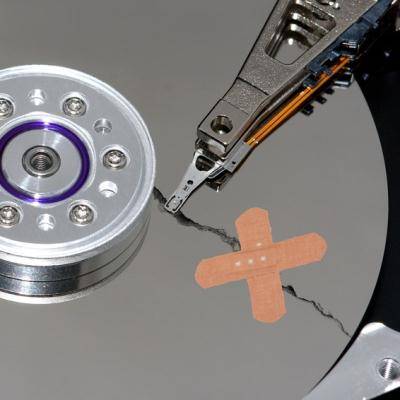 Step back from your monitor for a moment and take a look at your business. Customers from all over the Upstate New York area and beyond are being helped. You have an inbox full of email from countless prospects and clients, and your activity on the world wide web is literally connecting you around the world. This complex coordination of of resources and people in front of you is called logistics.
Step back from your monitor for a moment and take a look at your business. Customers from all over the Upstate New York area and beyond are being helped. You have an inbox full of email from countless prospects and clients, and your activity on the world wide web is literally connecting you around the world. This complex coordination of of resources and people in front of you is called logistics.
 The expression on Drew's face is a perfect picture of what data loss looks like. There is nothing more frustrating than spending an entire day on a project, only to have it all disappear with a system error. Drew's mistake was that he was saving all of his work directly on his laptop. Not only is his work susceptible to a hard drive failure and the computer crashing, but his laptop is also at risk of being stolen along with all of his personal data.
The expression on Drew's face is a perfect picture of what data loss looks like. There is nothing more frustrating than spending an entire day on a project, only to have it all disappear with a system error. Drew's mistake was that he was saving all of his work directly on his laptop. Not only is his work susceptible to a hard drive failure and the computer crashing, but his laptop is also at risk of being stolen along with all of his personal data.
It's always important to be prepared for emergencies, and for a small business these days even a minor disaster can have long term ramifications with serious consequences. Whether the disaster is short lived, like a power outage or hardware failure in your server, or a more serious event like a flood or fire, you want to be able to get back in business as quickly as possible Here are some steps Upstate New York businesses should take to prepare and add to their disaster plans.
We’re not trying to be negative here. We're not trying to scare you and make you run out and buy a backup device (We’ll save those horror stories for another time). Today we’re going to talk about why hard drives fail. It doesn’t matter what manufacturer your drive comes from, what connection interface it has, who you bought your computer from, and believe it or not, it has nothing to do with the day your warranty runs out (no sir, that’s just a Murphy’s Law coincidence). All hard drives are built in pretty much the same fashion.
Everyone here at Directive would like to wish our clients a happy and safe Halloween! We'd like to share a couple computer and tech support horror stories to set today's spooky mood! Get out your flashlights and gather around the campfire for these chilling tales that could happen to any small business.
 When it comes to your business’s technology infrastructure, the more basic it is, the better. Granted, a simple IT infrastructure isn’t always easy to install, especially when there are so many great solutions on the market that can be implemented to achieve optimal efficiency. Sometimes the best IT solutions are those that make your technology simpler to manage, and your network less complicated. That said, you’d think redundancy would complicate this formula, but it’s actually a necessity for your business continuity plan.
When it comes to your business’s technology infrastructure, the more basic it is, the better. Granted, a simple IT infrastructure isn’t always easy to install, especially when there are so many great solutions on the market that can be implemented to achieve optimal efficiency. Sometimes the best IT solutions are those that make your technology simpler to manage, and your network less complicated. That said, you’d think redundancy would complicate this formula, but it’s actually a necessity for your business continuity plan.
 A business’s data is one of its most valuable assets. Without it, your organization would fail to function and, more likely than not, crash and burn. This is the reason why hackers try so hard to steal or corrupt data from businesses just like yours; they understand its value, and it’s about time that you do the same. Therefore, protecting your business’s continuity by backing up your data is of critical importance.
A business’s data is one of its most valuable assets. Without it, your organization would fail to function and, more likely than not, crash and burn. This is the reason why hackers try so hard to steal or corrupt data from businesses just like yours; they understand its value, and it’s about time that you do the same. Therefore, protecting your business’s continuity by backing up your data is of critical importance.










